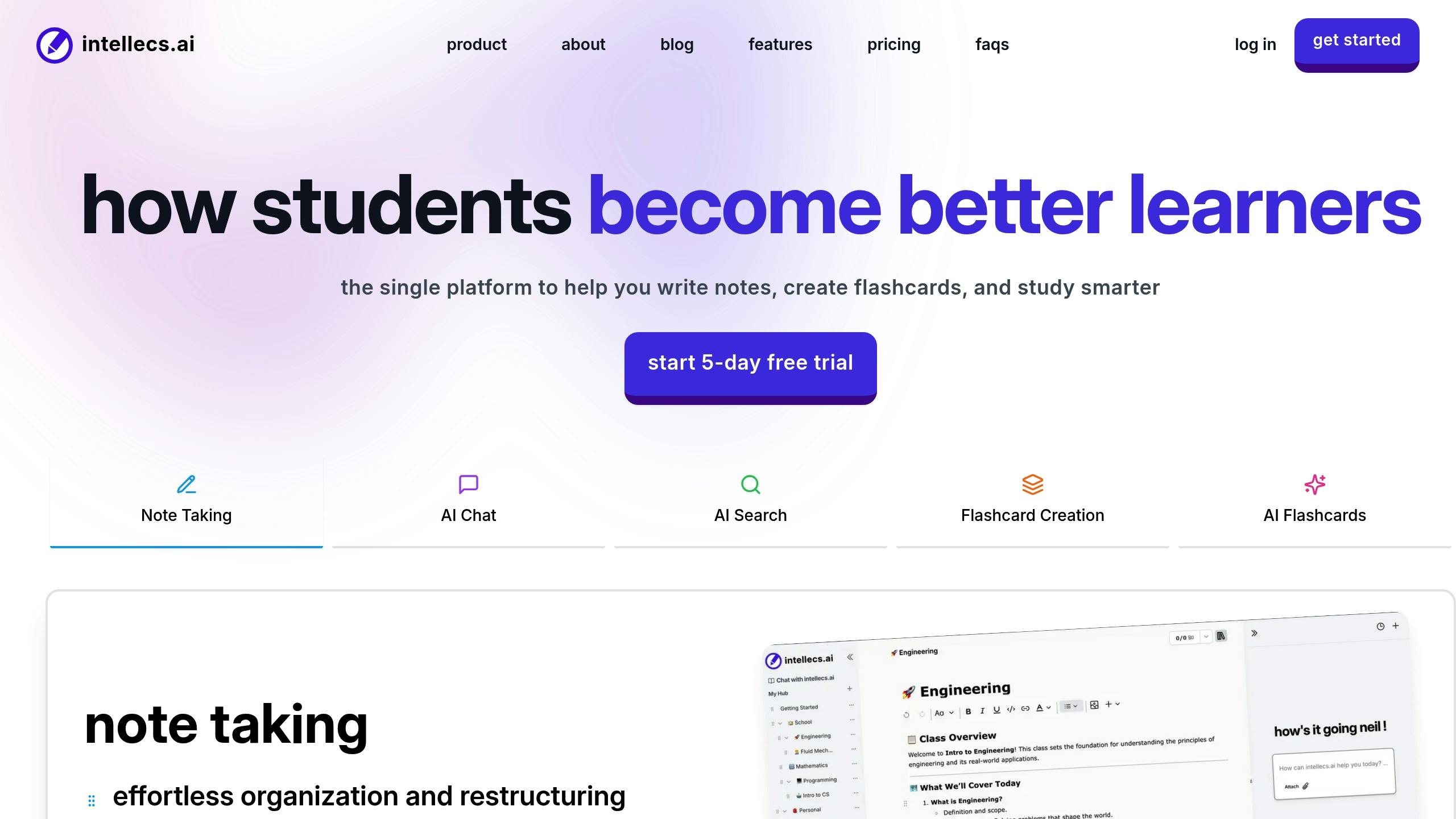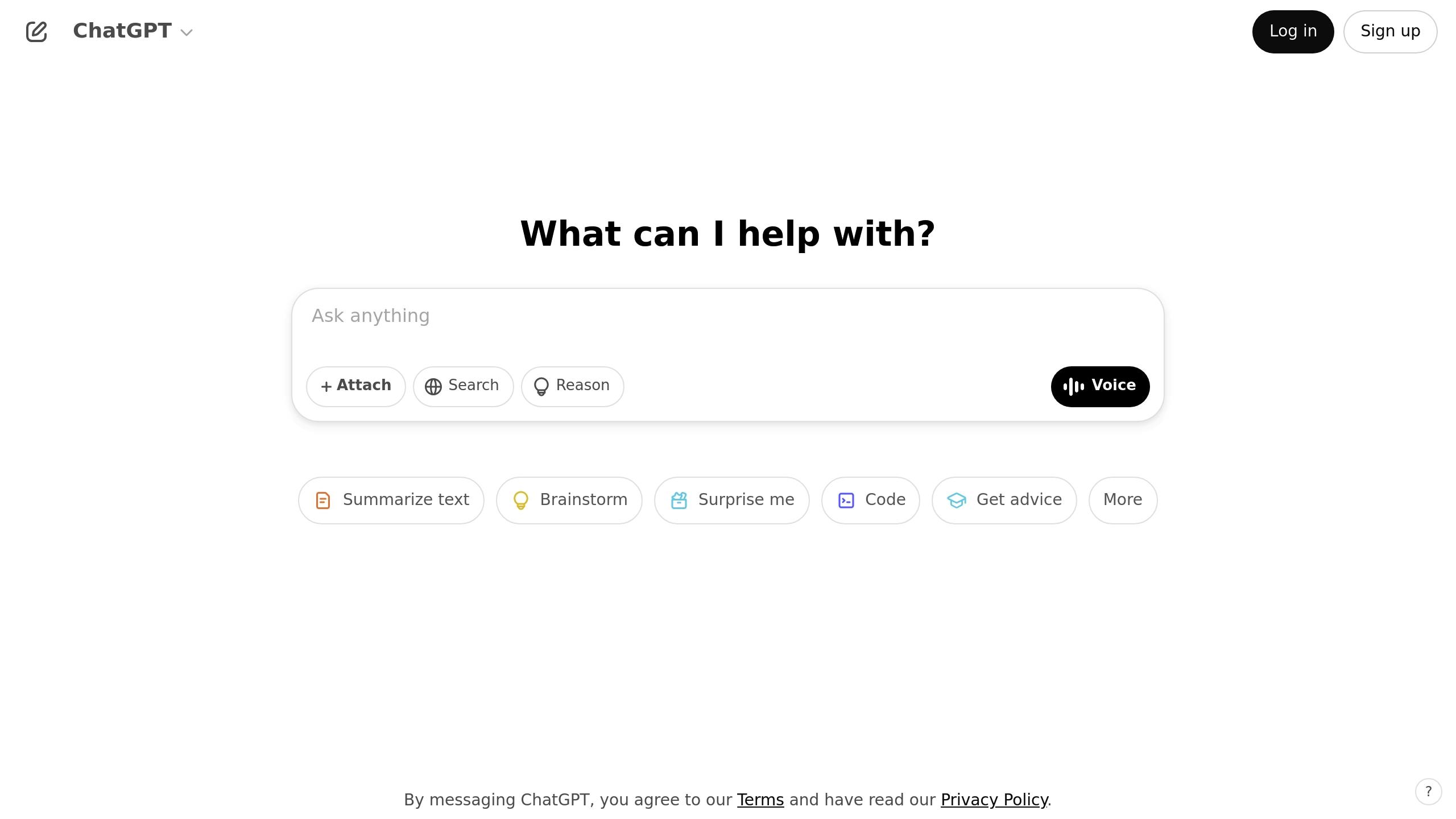
Skills-Based Education: How to Focus on What Really Matters in College
Want a career-ready edge after college? Focus on skills, not just grades.
Today, only 44% of employers think graduates are ready for entry-level roles. Why? There’s a major gap between what colleges teach and what jobs demand. Skills-based education bridges this gap by emphasizing practical abilities over theory.
Here’s what you’ll learn:
- How to identify in-demand skills using job trends and AI tools like ChatGPT and Intellecs.ai.
- Ways to gain hands-on experience through internships, field projects, and industry groups.
- Tips to build and track your personalized skill plan.
Related video from YouTube
Finding Skills That Match Your Career
Identifying the right skills for your career while in college involves a mix of research, expert advice, and analyzing job postings. Here’s how you can figure out which skills will make the most impact.
Analyzing Market Trends
Skills like cloud computing and artificial intelligence are expected to dominate by 2025. To stay updated, keep an eye on these resources:
| Source | Information Provided | Update Frequency |
|---|---|---|
| Bureau of Labor Statistics | Employment trends and industry data | Monthly |
| World Economic Forum Reports | Predictions for future job markets | Annually |
| Indeed Industry Analysis | Current skill demands | Quarterly |
By regularly checking these sources, you can stay on top of what employers are looking for.
Seeking Expert Guidance
Getting advice from experienced professionals can help you focus on the skills that make a difference. CNBC research shows that employees with mentors are 15% more likely to stay in their jobs and develop relevant skills faster.
"By honing irreplaceable skills, you can protect your potential earning power, regardless of the shifting market." - Sinéad, Career Advisor, Indeed
You can connect with experts through industry events, professional groups, LinkedIn, or online communities.
Reading Job Listings
Job postings are a goldmine of information about the skills employers need. Tools like Applied's Job Description Tool reveal that focusing on key skills instead of long lists of qualifications can boost applications by 10-15%.
When analyzing job listings, pay attention to:
- Frequently mentioned technical skills
- Highlighted soft skills
- Required certifications
- Expectations for entry-level experience
AI Tools for Learning Skills
Modern AI tools are changing the way we learn by organizing materials, enabling practice, and tracking progress. Here’s a look at some powerful tools designed to help you develop skills more efficiently.
Using intellecs.ai to Track Skills

Intellecs.ai brings multiple learning tools into one platform, simplifying the process of skill development. Instead of juggling various apps, this tool keeps everything in one place. Here’s what it offers:
| Feature | Purpose | Benefit |
|---|---|---|
| Smart Note Organization | Keeps learning materials tidy | Quick access to skill-related content |
| AI-Enhanced Notes | Expands and explains content | Covers topics thoroughly |
| Active Recall System | Tests knowledge retention | Strengthens what you’ve learned |
For $25/month, Intellecs.ai provides tools that would typically require multiple apps, saving both time and effort.
Learning with ChatGPT

ChatGPT is like having a personal tutor available 24/7. It’s a flexible tool that can assist with skill-building in several ways:
- Creates practice problems tailored to your level
- Breaks down complex ideas into simple explanations
- Simulates interactive learning scenarios
- Gives feedback on your answers and solutions
"Our AI helps you learn smarter, not cheat better." - Intellecs.ai
ChatGPT isn’t the only option; there are plenty of other AI tools to explore for learning support.
Other AI Learning Tools
The world of AI learning tools is vast, offering specialized options to enhance your skill-building experience. For example, spaced repetition systems improve memory retention, while AI-powered search engines make it easy to locate relevant information when needed. These tools help you stay consistent in your learning, avoiding the pitfalls of last-minute cramming.
To get the most out of these tools, pair them with tried-and-true learning methods:
- Start with AI-enhanced notes to build foundational knowledge
- Practice through interactive AI exercises
- Apply what you’ve learned in hands-on projects
- Use spaced repetition to review and reinforce your skills
With the right mix of AI tools and traditional methods, skill development becomes more manageable and effective.
Getting Hands-on Experience
According to NACE's Job Outlook 2023, only 37% of employers prioritize grades, focusing more on practical skills instead. Here’s how you can gain real-world experience during college.
Finding Internships
Start your internship hunt early - about 4 to 6 months in advance. Look for programs that offer clear goals and mentorship opportunities.
| Internship Search Strategy | Goal | Action Steps |
|---|---|---|
| Early Planning | Lock in top opportunities | Start searching 4–6 months in advance |
| Research Companies | Align with your values | Read reviews on Glassdoor and Indeed |
| Tap Your Network | Discover hidden roles | Connect with alumni on LinkedIn |
| Strong Applications | Stand out to employers | Focus on relevant skills over GPA |
"Research the organizations, speak with students who interned previously with an organization, and read Indeed and Glassdoor reviews."
- Amy Pietrafesa, Senior Human Resources Consultant
If internships aren’t an option, field projects can also help you build practical expertise.
Working on Field Projects
Field projects allow you to put classroom knowledge into action. Programs like Clemson's Hydrogeology Field Camp or East Carolina University's Summer Geology Field Course teach skills like mapping, sampling, and data analysis.
Where to find field projects:
- Reach out to local museums and research centers.
- Look into field programs offered by your department.
- Join industry-specific field schools.
- Collaborate with community organizations.
Joining Industry Groups
Joining professional organizations can help you grow your skills and expand your network. For example, SkillsUSA, with over 413,000 members, offers resources to prepare students for careers.
"SkillsUSA empowers students to become skilled professionals, career-ready leaders, and responsible community members."
- SkillsUSA
Other groups to consider include the Association for Talent Development, Society for Human Resource Management, and International Society for Performance Improvement. The National Skills Coalition also hosts an annual Skills Summit and advocates for workforce development.
These practical experiences will help you build a strong foundation for your career and integrate seamlessly into your skill development plan.
Building Your Skill Plan
Once you've gained practical experience, it's time to organize your growth with a structured skill plan that aligns with your career goals.
Setting Clear Goals
Make sure your skill-building efforts align with what the industry needs and your own career aspirations. Employers are increasingly looking for specific, measurable abilities.
| Goal Type | Example | How to Measure |
|---|---|---|
| Technical Skills | Master Python for Data Analysis | Complete 3 real-world projects |
| Soft Skills | Improve Public Speaking | Lead 5 team presentations |
| Industry Knowledge | Understand FinTech Trends | Create monthly market reports |
Use the SMART framework (Specific, Measurable, Achievable, Relevant, Time-bound) for setting goals. This ensures your objectives are clear and actionable, helping you stay focused on what matters most.
Using Progress Tools
Tracking your progress is crucial. Tools like Intellecs.ai, available for $25/month, can help you stay on top of your skill development. It offers features like:
- Skills Dashboard: Keep an eye on how you're improving across various competencies.
- Learning Analytics: Measure the time you dedicate to each skill.
- Progress Milestones: Set and track specific achievement goals.
These tools provide valuable insights into your progress, making it easier to adjust your efforts as needed.
Updating Your Plan
Your skill plan isn't static - it needs regular updates to stay relevant. Revisit it every quarter to align with changes in the industry and your career path.
Key moments to update your plan include:
- Major advancements or shifts in your industry
- Completing important certifications
- Feedback from mentors or industry professionals
- Adjustments to your career goals
- The release of new technologies
Stay adaptable by keeping an eye on industry trends and being ready to pivot when necessary. Regular updates ensure your skills remain competitive and aligned with your ambitions.
Conclusion
Key Points Review
Skills-based education plays a crucial role in meeting the demands of today's fast-evolving industries. As Sarah DeMark, Vice President at Western Governors University, explains:
"Skills-based education shifts the focus from theoretical knowledge to practical application. It's about what you can do, not just what you know."
The job market is increasingly prioritizing practical skills, with studies indicating that nearly 50% of employees will need reskilling by 2025. To thrive in this environment, focusing on these elements is essential:
| Factor | Why It Matters | What to Do |
|---|---|---|
| Continuous Learning | 73% of industry leaders report skills gaps | Regularly review and upgrade your skills |
| Hands-On Experience | Leads to faster job placement for graduates | Take part in internships and real-world projects |
| Tech Skills | 40% of workers believe their skills will soon be outdated | Stay updated on the latest tools and technologies |
Focusing on these areas can help you stay competitive and ready for the challenges ahead.
Next Steps
Here’s how you can take immediate action:
- Evaluate Your Skills: Use platforms like intellecs.ai to compare your current abilities against industry expectations.
- Set SMART Goals: Create specific, measurable, achievable, relevant, and time-bound goals to align with market needs.
- Gain Practical Experience: Engage in hands-on learning opportunities. As LinkedIn CEO Ryan Roslansky puts it:
"The new way forward for building a more equitable and efficient talent marketplace is to shift to a skills-first approach."